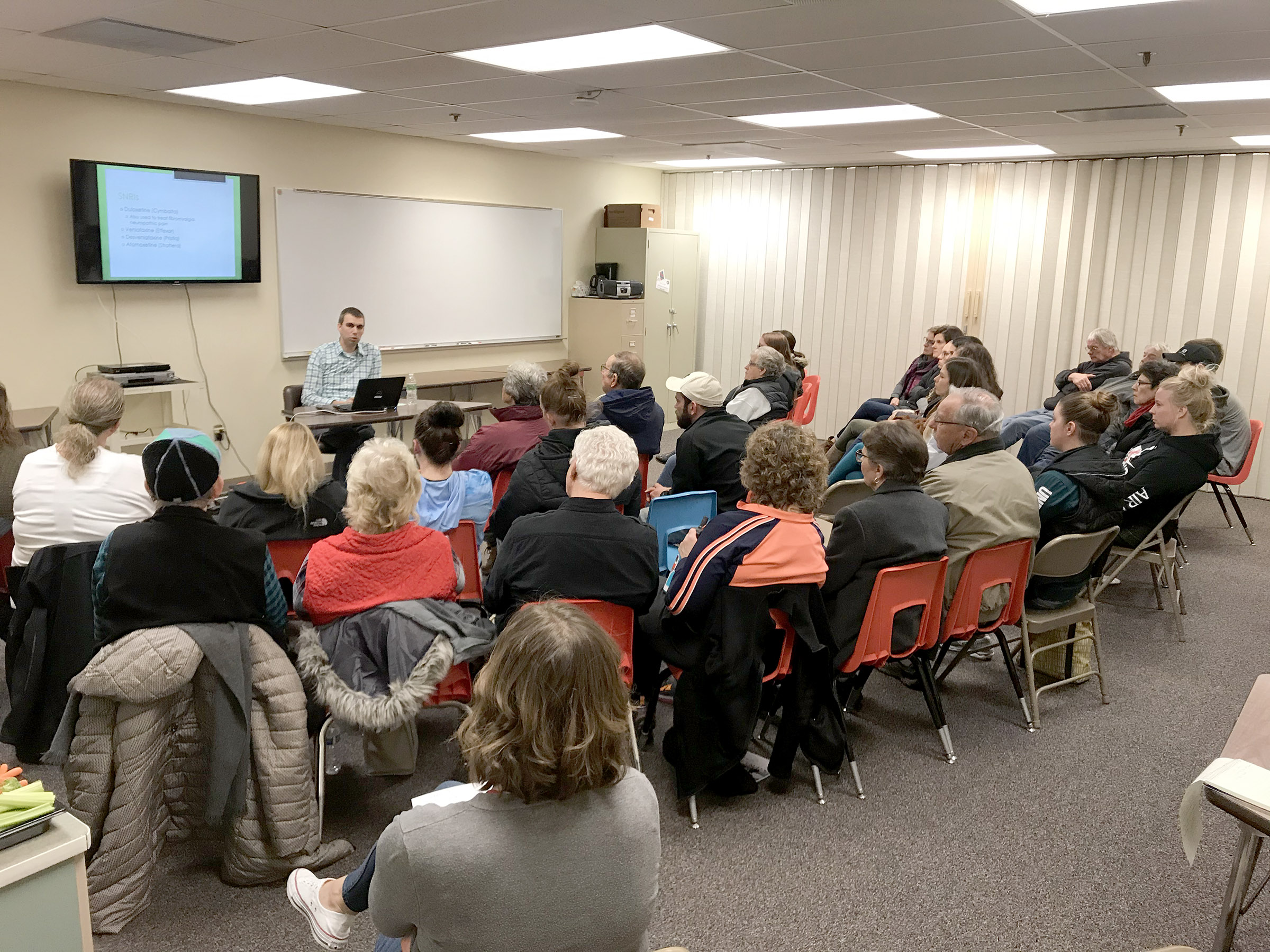
Science is steadily improving the way doctors treat and manage mental health conditions, and medications are a big part of that treatment.
Dr. Austin Spronk shared information about psychiatric medicine Monday night for a roomful of people at Luverne Community Education.
His presentation was the third in a series of monthly sessions on Brain Health started last fall by local advocates with #Luv1LuvAll to end stigma and encourage conversations about mental health.
Angela Nolz, integrated health therapist at Sanford Luverne, has helped organize the classes and encourages open discussions about brain health — like physical health — toward improved quality of life.
“This is a topic I’m passionate about,” she said Monday. “And I’m just glad we have resources in the community and people willing to share their expertise.”
Spronk, a family practice physician at Sanford Luverne, discussed medications that are commonly prescribed for certain diagnoses, and he talked about common side effects and drug interactions associated with them.
He explained how brain health works — about serotonin and dopamine and their effect on mood, concentration, sleep and daily living.
If the brain’s neurotransmitters aren’t firing properly, Spronk said, it can affect brain health and it’s important to seek help — whether through counseling, medication or both.
“Medications can be a helpful part of treatment for mental health conditions, whether it is depression, anxiety, schizophrenia, ADHD or something else,” Spronk said.
“In the same way that diabetic medications help manage sugars in addition to diet and exercise, antidepressants help manage neurotransmitters in addition to counseling and or therapy.”
He shared data on the significance of mental health on the general population.
For example, 17 percent of all people are diagnosed with depression at some point in their life. Five percent of the population is diagnosed with anxiety at some point and 7 percent of children are diagnosed with ADHD.
He said he was encouraged by the diversity of Monday night’s attendees, who ranged in age from students to seniors and professionals to interested residents.
“I feel like we had an older generation here and I’m encouraged by that, because this was not a conversation that was had generations back,” Spronk said after the class.
Nolz said this is precisely the goal of the Brain Health series, to shift attitudes about mental health to practical approaches to brain health.
“I really do think it is about increased dialogue about the fact that it’s OK to not be OK,” Nolz said about the series. “That way we can move toward treatment options to be well.”
Evidence shows that people are less likely to seek treatment for anxiety or depression than they would for asthma or some other physical ailment.
That’s what Nolz and #Luv1LuvAll are working to change.
“What I get excited about is we have community members and local professionals who see this as worth their time to share their expertise,” she said.
The first class in the series featured a personal account of living with depression. The November class addressed the Basics of Brain Health and the third class Monday focused on medication.
The February session will be about healthy relationships, and future classes will address chemical awareness and mindfulness.
Community members can attend monthly sessions at the Community Education office.
There is no charge to attend, but registration is requested in order to plan adequate space and accommodations. Call 507-283-4724. Certificates of attendance will be available.


